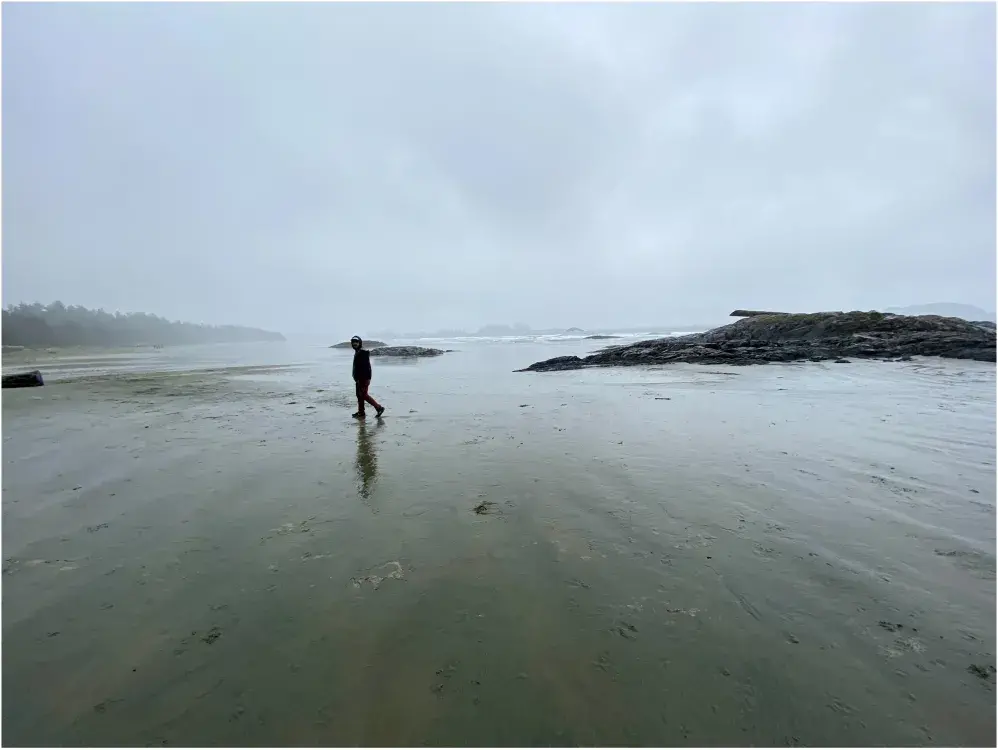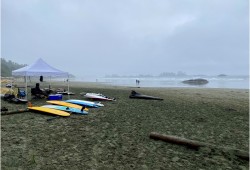Tourism Tofino has become a Biosphere Committed Destination with the Responsible Tourism Institute and will now pursue Tourism Biosphere Certification.
The Responsible Tourism Institute’s (RTI) Biosphere Program is a globally recognized sustainability management and certification system that aligns with the United Nations’s 17 Sustainable Development Goals (SDGs) and the 2030 Agenda for Sustainable Development.
Tourism Tofino will aim to become Biosphere certified through the enhancement of its sustainability efforts, encouraging collaboration on regenerative projects and distinguishing Tofino as a destination of choice for those seeking responsible travel experiences.
For more than 25 years, the biosphere program has helped destinations, businesses and organizations define, organize and make visible their sustainability goals. It offers a model for developing a sustainable development plan in a personalized way, including an annual evaluation process and external audits to measure progress.
“We chose the Responsible Tourism Institutes Biosphere program to align with other destinations across Vancouver Island and British Columbia. It was a natural choice due to the work 4VI has already done and the support they offer to communities and businesses,” said Jody Kirk, Tourism Tofino’s destination stewardship manager, in a press release. “We felt that using the same framework across Tofino and the industry would allow us to compare, streamline and actively pursue goals together.”
4VI is a social enterprise created to ensure travel is a force for good. Headquartered on Vancouver Island, the organization takes a holistic approach to its work through the use of four pillars of social responsibility: businesses, communities, culture and the environment.
Already actively engaged in sustainability initiatives, Tourism Tofino supports programs such as being a Surfrider Ocean Friendly Business, offering a marine debris recycling station at the Tofino Visitor Centre, collaborating with Tofino's Coastal Queer Alliance, and partnering with organizations like Spinal Cord BC and the Clayoquot Biosphere Trust.
The Biosphere Sustainable platform and methodology is aimed at any company that interacts, directly or indirectly, with the tourism sector. Companies are able to come up with strategies and create an action plan to convert sustainable intentions into action.
“The traditional territory of the Tla-o-qui-aht First Nation, which includes Tofino, is renowned for its natural beauty and biodiversity” said Brad Parsell, Tourism Tofino’s executive director, in a press release. “This is thanks to the continued stewardship of the Nuu-chah-nulth First Nations, as well as environmental initiatives and activism aimed at protecting the area. The Biosphere program will be a valuable tool for setting new goals and initiatives as we seek to make Tofino’s tourism sector not just sustainable, but regenerative and abundant for generations to come.”
Saya Masso, natural resources manager with the Tla-o-qui-aht First Nations, said Tourism Tofino’s interest in pursuing a more sustainable model is welcomed by the Tla-o-qui-aht, but there’s still a long way to go.
“There’s still so many outlying communities that aren’t being lifted up by tourism, and the Tla-o-qui-aht community is certainly one of them,” Masso said. “We’re being kind of left behind in the benefits of tourism but we’re baring the impacts of tourism in our homelands from sewage treatment on our clam gardens or other impacts to our way of life.”
Managing water use in Tofino will be one challenge towards pursuing a more sustainable community. Last summer, the District of Tofino issued Stage 3 water restrictions by July 10 and asked the community and businesses to immediately reduce water consumption by 20 per cent.
“We do have to manage water in the drought years as much as Tofino does,” Masso said. “Ultimately we are constrained in our ability to grow the region more because of that, so we will have to seek new sources as well as applying conservation efforts.”
Masso said studying water shortage issues, understanding demographic growth and user needs are a few ways to work towards water sustainability for the area.
The housing shortage in Tofino and area is another challenge towards sustainability.
“Even Tla-o-qui-aht has ambitions to do a sub development on one of our properties and we’re currently held back because of the lack of infrastructure from water and sewage,” Masso said. “We could easily do an affordable housing sub development but we still need to line up all the other infrastructure to make that possible.”


